Keeping a few chickens in the back yard really is quite straight forward; however there are some things to consider in order to get the right sort of birds for your situation and to keep them in the best possible health to get the most enjoyment out of keeping them.
This page hopes to get you thinking about the types of chickens and their requirements.
Choosing a breed
There are quite literally hundreds of different breeds of chicken to choose from and out of these, many have slightly different requirements.
Some breeds of chicken come only as Large Fowl, and others are also available as Bantams which are a smaller version that look the same. The Orpington for example is available in both large and bantam sizes but the Cochin is only available as large fowl.
There are a handful of ‘True Bantams’ where there is no large fowl equivalent. Examples of these are Dutch Bantams, Japanese Bantams and the popular Pekin Bantam.
Bantams tend to be quite flighty whereas the heavy breeds of large fowl often cannot fly more than a few inches off the ground. Orpingtons for example won’t usually roost very high due to their huge size and will usually just huddle on the floor of the coop.
Every breed is slightly different in the amount of eggs they lay. Typically hens that have been bred for exhibition purposes do not lay as well as utility hens. Bantams of course lay smaller eggs which some people say they prefer for taste.
Hybrids
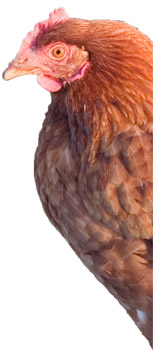 Hybrids are chickens that have been created by crossing pure breeds. They are typically crossed to make good layers (the hybrid to the right can lay 280 to 300 eggs!), coloured eggs or attractive hens. Some can be very attractive and they are all generally very hardy. Hybrids are produced in larger numbers that pure breeds and most of the crosses used make the males a different colour as day old chicks so that only females can be raised, therefore reducing costs by about half. A typical hybrid hen will cost you around £15 compare to £25 to £30 for a typical pure breed hen.
Hybrids are chickens that have been created by crossing pure breeds. They are typically crossed to make good layers (the hybrid to the right can lay 280 to 300 eggs!), coloured eggs or attractive hens. Some can be very attractive and they are all generally very hardy. Hybrids are produced in larger numbers that pure breeds and most of the crosses used make the males a different colour as day old chicks so that only females can be raised, therefore reducing costs by about half. A typical hybrid hen will cost you around £15 compare to £25 to £30 for a typical pure breed hen.
Hybrids are a good choice if eggs are one of your priorities although if you think you might like to hatch some eggs, remember hybrid hens do not breed true – you would need the original pure breeds to cross again in order to create more of the same thing so whilst you can hatch their eggs, you may want to consider a few pure breeds for this purpose or consider buying in eggs to hatch.
Free Range
You will of course need a chicken coop but also a secure run or area that is predator proof. A question that people always ask me is “How big should their run be?” I always say “as big as possible within reason.” Even 2 chickens kept in a 2 meter run will soon turn it to mud and get bored (which can introduce vices such as feather pecking and egg eating) but I always believe that it’s fine to provide a small run like this if you can let them out for a few hours each day to free range while you are around. This will give them a chance to forage, supplement their diet and reduce boredom.
Once chickens have settled into their new house, they will go back to it to roost every night so you can let them out in the late afternoon, knowing they will come back to roost at night keeping everyone happy! Some houses and runs have handles or wheels that make them easy to move onto fresh ground which is not only good to prevent a build up of worm eggs and disease but also provides them with a little fresh grass to graze.
Keeping Chickens in the Garden
If you have a ‘nice’ garden that you don’t want spoilt, it’s usually a sensible idea to limit their foraging. Chickens scratch at the ground, make dust baths in the dry soil, leave muck wherever they go and destroy tender young plants. If you can plant in pots, this will help and fencing off part of the garden is usually a good choice to keep them out if you have tender or precious plants. Chickens with feathered feet scratch less and bantams can clear a 6 foot fence if they want to. Heavy breeds of large fowl can be kept out with a knee high fence or box hedge. If you want to stop a bird from flying then you can clip one wing (not both).
So you have decided on the breed that’s right for you and your circumstances. Next, you will need to think about keeping them secure from predators in a suitable chicken house and chicken run – click on a link to go to that page!


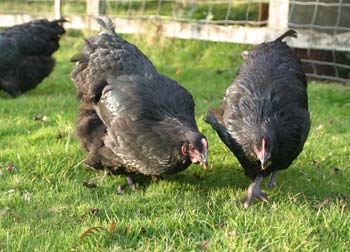
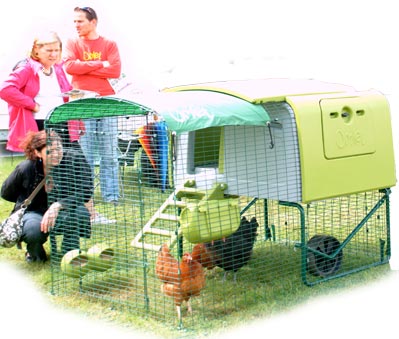
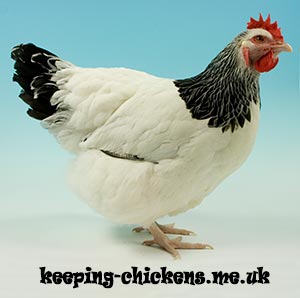
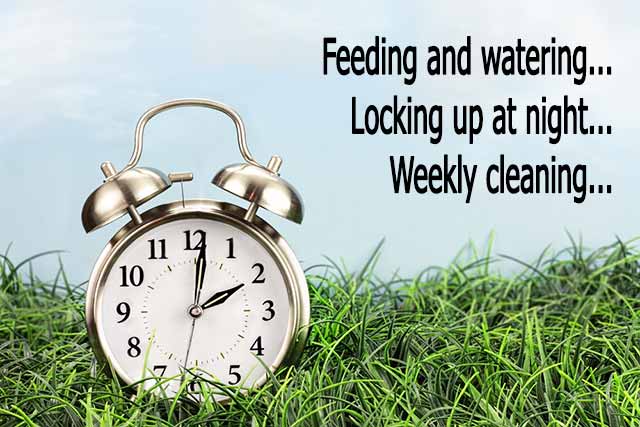

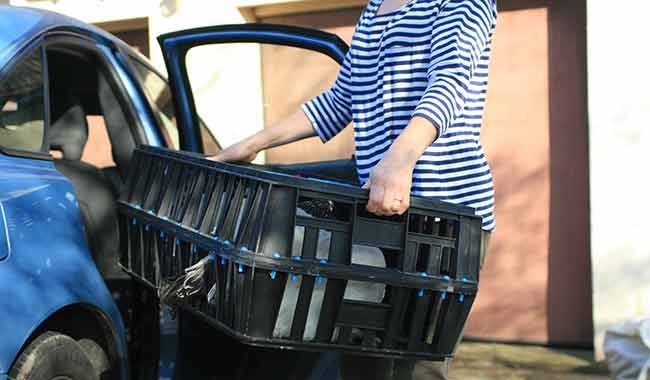
Hi my two girls are settled now and find their way back to roost every evening ,but now they seem to roost in nest box and not on perched ,which they did when they first arrived ,should I block of nest box ,help
Yes, block them off at night and make sure the perches are higher than the boxes.
i am having 3 chickens delivered on thursday i have everything ready for them but would like to know if i need to keep them in there coop initially for a little while
Yes, just for the first day or two, keep them in their run and put them into their coop at night if they don’t go in. They soon get the hang of this.
Please advise if three chickens is a good idea…..I have heard you should never keep an odd number of chickens as the pecking order will not be good! Many thanks
Chickens are flock animals so shouldn’t be kept alone. 3 chickens is the normal minimum number because if you lose one then they still have company. The odd number thing is a wives tale…
Hello. We are considering having chickens, not too many about 3. Would that be a suitable number as to whether they get on better in pairs? also how many of what sex should I buy? We have a large garden and live next to an agricultural field. I saw a fox one evening so I want to know if the coups/cages are quite safe from a fox harming a chicken. Regards Jill
3 is good since they are flock animals. If you lost one, the other 2 can then keep going without you having to introduce another which would be traumatic.
You shouldn’t get a cockerel with only 3 hens. Foxes are a constant problem and each coop is different so it’s hard to comment on suitability.
Great site, thank you for taking the time 🙂
Just getting started on coop, should get chickens within next fortnight – been looking after my cousins chickens (with rooster).
Does having a rooster present in the group keep chickens any happier? Or is this a human romanticism?! We are just looking to get a few eggs really and have them ‘about the place’ – if roosty not necessary I run less risk of annoying neighbours (!). Thoughts?
Many thanks, Catherine.
A rooster can help with the pecking order. If there are any ruffled feathers amongst hens, he will usually rush over to sort things out. He will also call the hens and show them where there are tit bits for them.